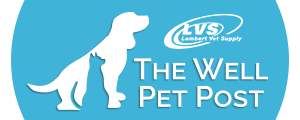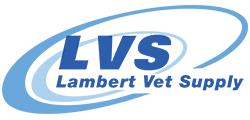
Digestive Health in Dogs and Cats
Posted December 2, 2016 in Cat Health, Dog Health

More than 6.5 million dogs and 12.4 million cats suffer from chronic digestive problems. The symptoms they experience include gas, diarrhea, bloating, and nausea. Many more pets suffer the occasional digestive upset due to changing to a new food, antibiotic use, or stress. Having intestinal discomfort is no fun for our pets or for us, but there are effective means to help make them more comfortable and to strengthen their digestive system naturally.
Related Article: Good, Quality Canine Nutrition Makes a Difference >>
Digestive Enzymes = Natural Nutrient Delivery System
Digestive enzymes breakdown and deliver nutrients from a pet’s food to every part of the body. We all try to do the right thing for the other member of the family, our pet, but there are many factors that decrease the amount of enzymes available to our pets. Enzyme drains include; age, strenuous exercise, illness, stress, processed diet, genetic factors, or antibiotic use. Pets experiencing any of these enzyme drains will benefit from supplementation.
Deposit Enzymes for a Rainy Day
Enzymes are destroyed in the normal processing of most commercial pet foods. Supplementing with enzymes is an effective way to replace the loss due to heating and processing but there are significant differences in enzymes. Plant based enzymes are stable at the pH of a dog and cat’s digestive system and will start working in the esophagus and continue to the tail. Many industrial or animal based enzymes are effective only at pH levels that are not commonly found in the body and therefore are of less value.
Because vitamins, minerals and hormones cannot do their jobs without enzymes, a deficiency will affect not just digestion but the pet’s overall health. Some of the signs of enzyme deficiency and poor digestion include; excessive itching, shedding, hair balls, body odor, rash, runny nose, bad breath, diarrhea, constipation, infection, and poor immune system. Supplementing with digestive enzymes can not only address a digestive deficiency but can also aid in creating stores in the body that will benefit immune function and the pet’s overall health.
Increased Friendly Bacteria = Improved Gastrointestinal Health
Another important tool in the natural digestive health toolbox is native friendly bacteria.
- Your pet’s digestive system is home to hundreds of different species of both beneficial and potentially harmful bacteria. These intestinal bacteria exist in a delicate balance that influence the way your pet digests food and absorb nutrients. An optimal balance of power between friendly and unfriendly bacteria must be maintained for good health.
- Your pet’s friendly bacteria play a critical role in many aspects of immune responses. They help to resist infection and keep the potentially harmful bacteria at bay by helping control their population. They also fight toxins and other internal stresses that can threaten a pet’s health.
Adding a prebiotic to your pet’s food helps friendly bacteria thrive. Prebiotics are the fast food for these friendly bacteria. Prebiotics do not have to be refrigerated and will selectively feed the beneficial native bacteria in the dog and cat’s system. Prebiotics such as fructooligosaccharides (FOS) found in OptaGest are natural and safe. FOS is found naturally in mother’s milk.
Related Article: Adult Cats Need Healthy Food Options for Optimal Health >>
Whether you are changing to a new food your pet is on antibiotics or you just want to keep their digestive system healthy, supplementing with a digestive aid helps keep your pet comfortable and at the top of their health.

